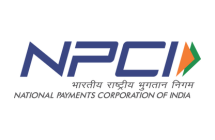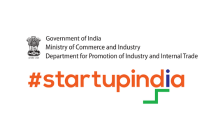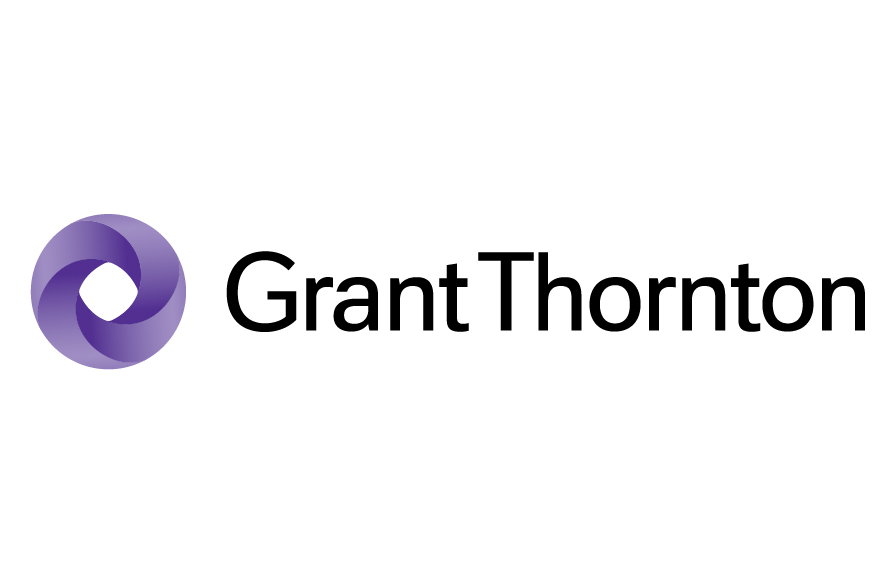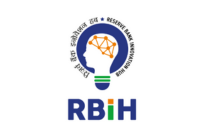Welcome to the Global Fintech Fest knowledge base. Explore the fintech landscape through insights from a wide range of knowledge contributors from across the globe.
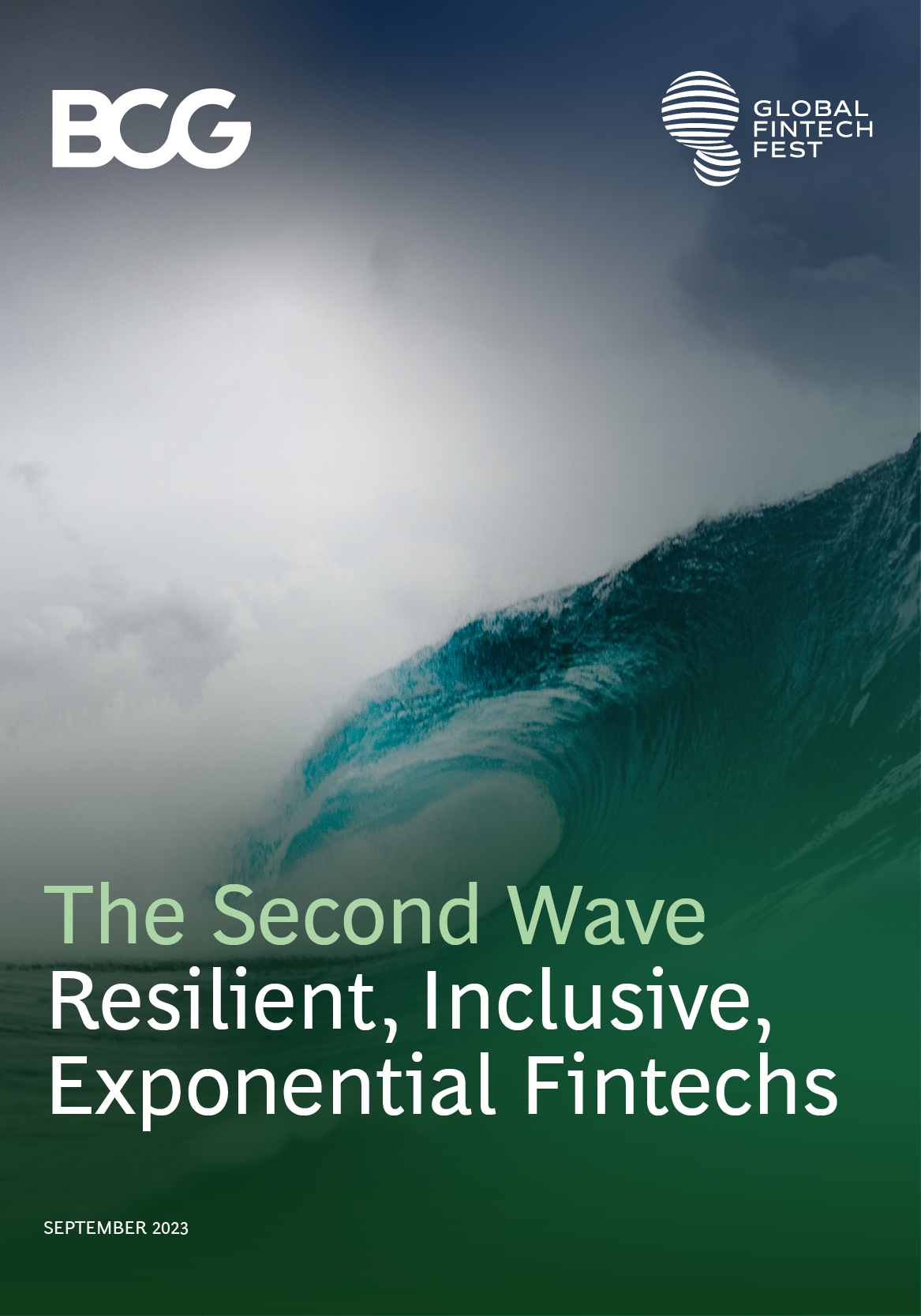
Report presented by:

The Second Wave - Resilient, Inclusive, Exponential Fintech
The current global macroeconomic environment is more unsettled than at any point in the past few decades. The "poly-crisis" of the pandemic, socio-political tension, rising interest rates, soaring inflation, decelerating growth, funding winter, and currency fluctuations are creating a complex, once-in-a-generation challenge. We envisage the future growth to be more equitable and inclusive and "resilient by design", to be able to recover quickly from future black swans.
We also strive to bring sustainability from concept to action–as we take responsibility for our future. Building a resilient financial ecosystem requires deep collaboration between global governments, financial institutions, and consumers to create a strong and sustainable financial future; dovetailed efforts of Incumbents and Fintech players would be critical to catapult the economy from surviving to thriving.
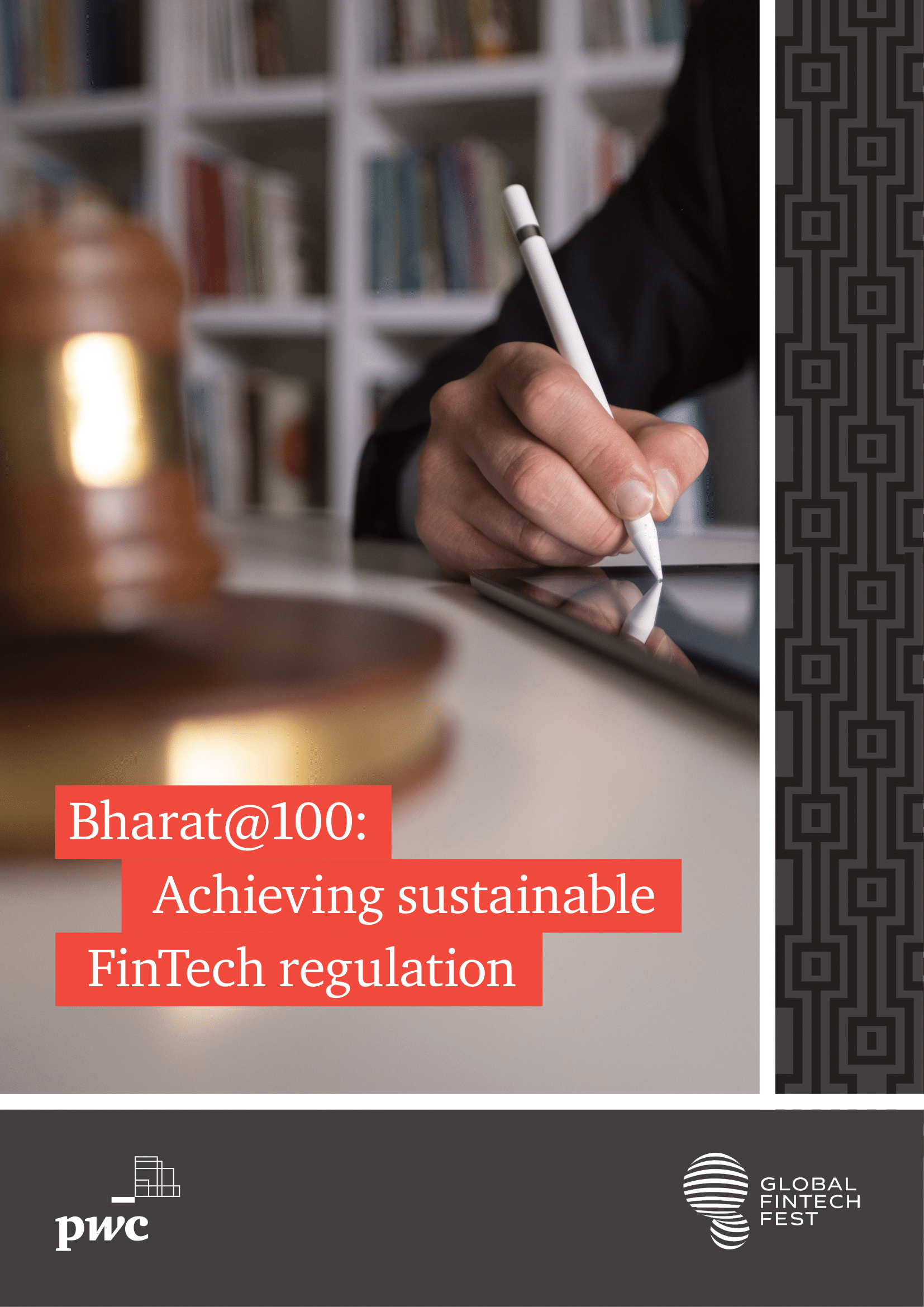
Report presented by:

Bharat@100: Achieving Sustainable FinTech Regulation
India@75 has built itself a robust FinTech ecosystem. To drive this growth further, especially in the financial service sector, Bharat@100 envisions taking financial inclusion to the next level through rising FinTech trajectory and inclusive regulation. To rise to the occasion, we sense that Bharat will remain true to its theme of building a democratized regulatory landscape across the digital financial service sector (FinTechs + Regulated Entities). Increased regulatory oversight and parallel alignment of existing initiatives and regulations have the potential to echo India’s forward-looking approach to FinTech-enabled growth of the financial services sector.
From this perspective, this paper, inter-alia, covers the following topics alongside certain recommendations that aim to assist in making the Bharat@100 journey a commendable one:
• Benefitting customers, regulated entities and the regulators through the adoption of risk-based KYC
• Moving towards more democratized KYC processes for entities falling under the four financial sector regulators
• Making diverse data (across sub-sectors) available on and accessible through account aggregator
• Urging mandatory participation of regulated entities on the account aggregator platform

Report presented by:

Embedded Finance - A strategic outlook
The world of finance is rapidly evolving, and embedded finance is at the forefront of this transformation. In our paper on the growth and future of embedded finance, we explore the current state of the industry and the opportunities and challenges that lie ahead within the FinTech ecosystem. Moreover, we analyze the trends that are driving the growth of embedded finance, such as the increasing digitization of financial and non-financial services, growth of open banking, and increase in digital payments. The paper also provides insights into the benefits of embedded finance for various stakeholders, including businesses, financial institutions, and consumers.
Furthermore, it highlights the potential for embedded finance to enhance customer experience, increase financial inclusion, and create new revenue streams for businesses and financial institutions. In addition, high-level technical and regulatory considerations that are critical to the success of embedded finance – such as the challenges of integrating financial services into non-financial products and services – are explored.
Finally, we provide a glimpse into the future of embedded finance and the innovations and trends which are likely to shape the industry in the coming years.
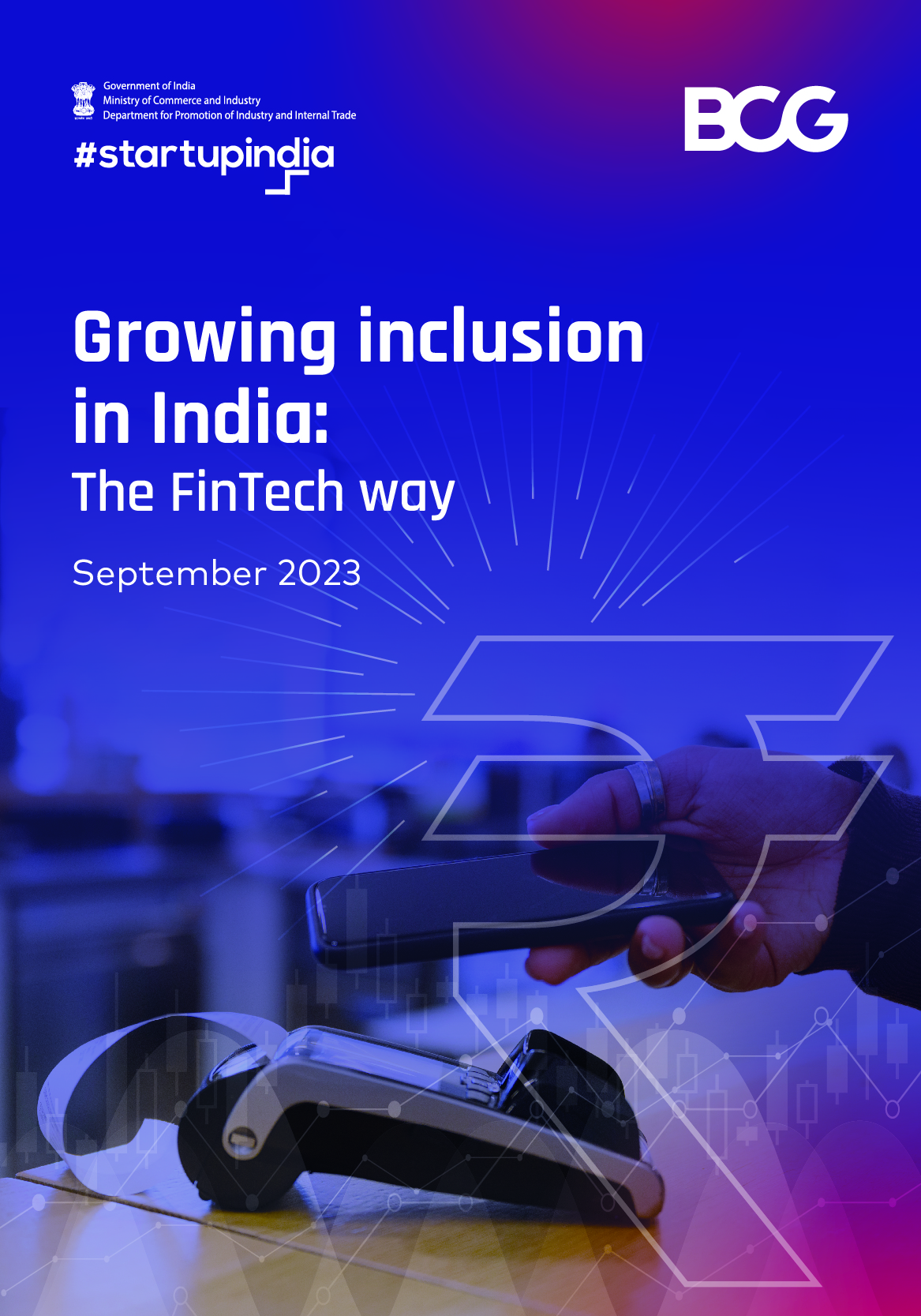
Report presented by:

Growing Inclusion in India: The FinTech Way
Considering the ability of FinTechs to innovate, work in an agile manner and their affinity towards technology, they have emerged as a key ecosystem player in enhancing inclusion in India. With continued support from the Government, an ongoing focus on enhancing the Digital Public Infrastructure and strong collaboration between all ecosystem stakeholders, FinTechs can help to unleash the next phase of rapid growth in India.
Startup India, DPIIT and BCG have jointly taken a holistic view of inclusion across seven different, but equally critical themes, that is equity and financial inclusion for women, growth beyond Tier-I cities, access to financial products and services for the underserved, strengthening the agri-community, empowering the youth, growing employment and supporting internal employee dimensions of diversity.
Key takeaways:
• Inclusion is a key pillar for FinTechs in their vision and growth strategy
• Not only decacorns or unicorns, but even smaller FinTechs are creating strong on-ground impact
• Impact is being created beyond tier 1 cities as well and underserved segment is a key focus
• FinTechs are not just founded in the big cities, even the share of beyond tier 1 and women-led is growing rapidly
As India’s FinTech market stands on the cusp of exponential growth, sustaining an unwavering commitment to inclusivity and technological innovation is paramount. Three focus areas going forward: 1) Create and adopt inclusive products and services, 2) Enhance adoption of inward looking inclusion strategies and 3) Democratize tech and continue to build an inclusive ecosystem
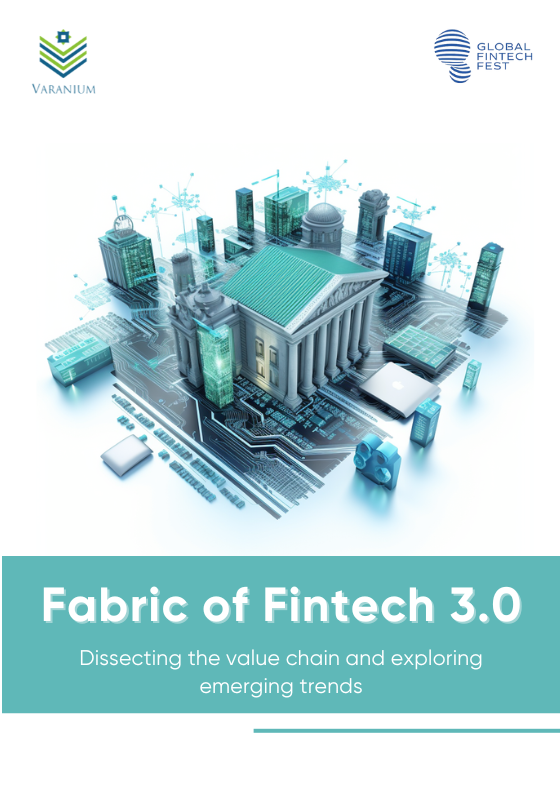
Report presented by:

Fabric of Fintech 3.0: Dissecting the value chain and exploring emerging trends
Interweaving of technology with finance has made transactions cheaper, faster, efficient and seamless. The Indian fintech ecosystem is witnessing remarkable growth, fuelled by a surge in venture capital investments, government initiatives, and a culture of innovation. With the continuous advent of new initiatives by financial sector regulators such as announcement of public tech platform, Bima Sugam, National Health claim exchange, UPI’s international expansion and focus on suitable and sustainable growth has led India’s emergence as a global fintech superpower.
India’s digital transformation especially in the fintech sector has been nothing short of revolutionary. The Indian Fintech ecosystem includes a wide range of sub-segments namely alternative lending, insure tech, wealth tech, payments, neo-banks, etc. This report talks in detail about digital infrastructure, open data initiatives, emerging trends under various verticals of fintech, future trends and impact of technologies. Further, the report also makes a detailed comparison of global digital infrastructure, enablers and governing regulations with the rest of the world.
This fintech report has been specially curated by a fintech focused fund to provide you insights on new technologies and emergence of new trends in fintech. So, whether you're a venture capitalist with an eye for the next unicorn, a regulator grappling with the implications of digital currencies, or a technologist coding the future of finance, this report has something for you. Grab your analytical lens and your critical thinking cap. Let's unravel the Fabric of Fintech, one thread at a time.

Report presented by:

The Fintech State of the Union
The Fintech State of the Union is an annual study commissioned by Discover® Global Network in partnership with 451 Research of S&P Global Market Intelligence. This study is most comprehensive of its kind – surveying consumers, fintech vendors, and venture capitalists across North America (US, Canada), EMEA (UK, Germany), APAC (Singapore, China, India), and LATAM (Brazil, Mexico) to provide a unique 360 perspective of emerging trends and behaviors shaping the payments ecosystem. This report, “Transforming transactions: How the Fintech Landscape is Developing Across the Globe,” will give you a first look at the 2023 study findings and deep dive into key insights from each market surveyed.
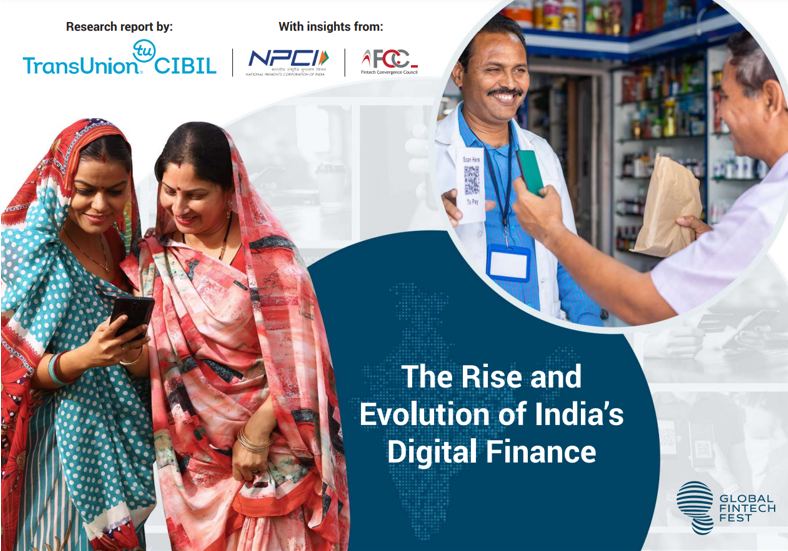
Report presented by:

The Rise and Evolution of India's Digital Finance
This research report, developed by TransUnion CIBIL with data insights from NPCI and FCC, explores the profound impact of digitalization on India's financial services industry. It focuses on the transformative effects of digitalization of credit and payments on the evolving consumer behaviors. Within this research, we do not delve into any other segments of digital finance, outside of lending and payments.
This research touches upon the pace of internet adoption and smartphone penetration in India, coupled with the modernization of country's digital infrastructure, which has fueled the uptake of digital finance. Further, the advent of UPI has ignited a digital revolution and transformed India’s digital payments landscape positioning India as a global leader in this domain.
We uncover key themes that address the rising scale of digital financial services, the permeating of digital credit and payments in everyday needs, the shifts in consumer behaviors due to digital convenience driving repeat consumption along with inclusion and expansion opportunities for India. We also touch upon how FinTech lenders have managed risk and the need for sharper portfolio and collections management for prudent growth. Through these comprehensive topics, we paint a vivid picture of India's digitalization journey and its undeniable impact on consumers’ interaction with financial services.
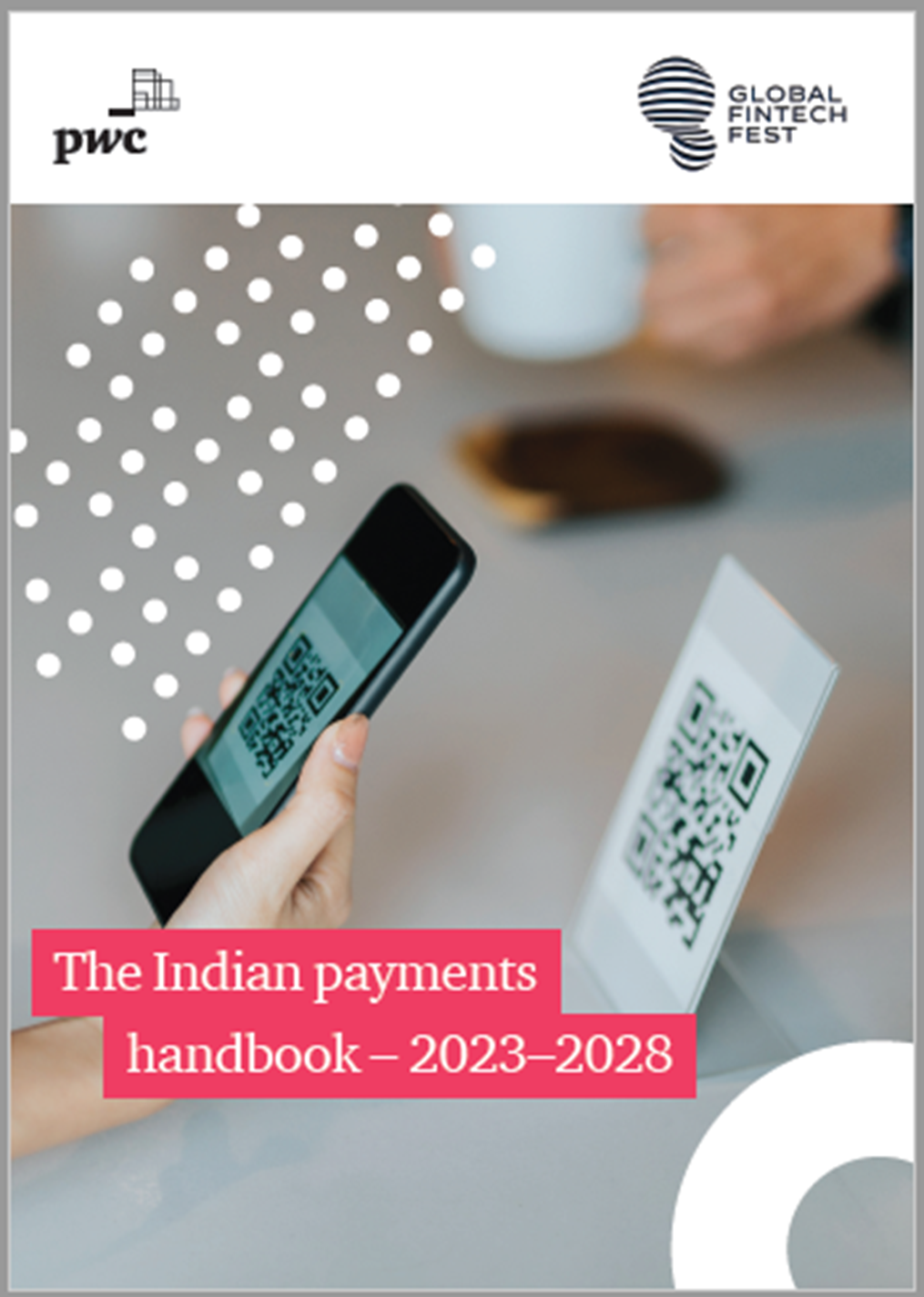
Report presented by:

The Indian Payments Handbook – 2023 – 2028
Digital payments in India are an ever-evolving space. We have already launched three editions of the Indian payments handbook since 2021, and the last edition was launched in May 2023.
The handbook focuses on India’s fast-growing digital payments industry. These handbooks highlight the trends and innovations in the industry which can act as catalysts to impact the digital payments industry in India. In this half yearly edition of the payments handbook, we have analyzed the recent trends in some leading payments modes (Unified Payments Interface [UPI], cards, National Electronic Toll Collection [NETC], etc.), new developments and innovations in this space, and consumer acceptance of these instruments. The handbook also evaluates the existing and new challenges and opportunities, which may further boost or act as a hindrance to the overall growth of this industry.
Furthermore, the handbook provides an overview of the role of technology and related interventions in the recent past and how such innovations can shape the payments industry in India. It also highlights the latest regulatory and Government interventions in this space. Moreover, it predicts future trends and growth of the payments market.
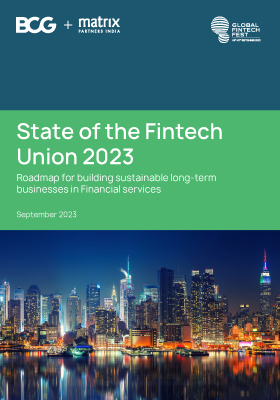
Report presented by:
State of the Fintech Union 2023 - Roadmap for building sustainable long-term businesses in financial services
With the global landscape of uncertainty, the Indian fintech story is facing formidable obstacles. Driving sharp focus on fiscal prudence, sustainable profitability, high quality governance and resilience can help navigate the funding winter and prepare for future growth. The shift from theoretical sustainability to practical implementation gains momentum, underlining the importance of responsible decision-making. A meticulously crafted regulatory framework, imbued with clarity, has the potential to significantly enhance and deepen collaborative efforts. Effective collaboration among government institutes, financial incumbents, and fintech pioneers emerges as pivotal for fostering a future, that's both robust and fair. Established financial institutions working alongside nimble fintech entities has the potential to steer the trajectory from mere survival to prosperous advancement.
Collectively, these aspects characterize an era in which challenges evolve into springboards for a stronger future
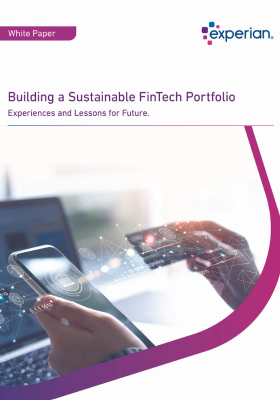
Report presented by:

Building a Sustainable FinTech Portfolio: Experiences and Lessons for Future
The advent of fintech’s, enabled by rapid advancement in digital public infrastructure, led to transformational growth in small ticket unsecured lending in India. This also spurred incumbent lenders to adopt the ‘FinTech way’ leading to further proliferation of technology-led growth.
FinTech’s operating model is fundamentally different from traditional lenders. There is a greater emphasis on leveraging technology and analytics to create customer journeys with reduced friction while ensuring underwriting due diligence standards do not get diluted.
FinTech’s' share in overall lending, though low, is increasing rapidly. Hence, it becomes imperative to understand the long-term implications of the accelerated growth of fintech’s in terms of portfolio vulnerability to default risk. Further, it is critical to understand the genesis of this growth. Are fintech’s helping create 'new markets' or is their growth merely a redistribution of lending pie?
This study attempts to objectively evaluate the portfolio built by fintech’s to assess its sustainability while also examining potential to scale up in times to come. Critical review of the experiences of fintech’s will help build empirical foundations basis which optimal pathway for fintech’s can be established.

Report presented by:

Special Issue on Innovations and Technology In Fintech 2023
Finance has one of the fastest-growing data volumes, innovations, AI and data science applications, such as digital assets, trading, blockchain, digital payments, mobility, RegTech, automation, etc. Fintech has rapidly evolved from "disruptive" to a stakeholder in the financial services industry. Fintech may generate new economic and financial models, products, services, and opportunities.
ICT Academy collaborates with Global Fintech Fest 2023 that brings together economists, fintech experts, researchers, academics, working professionals and industry gurus from all over the world to exchange ideas, insights and explore emerging trends and innovations in Fintech. The research compendium contains 10 meticulously curated research articles authored by scholars and experts from reputed institutions and organizations worldwide.
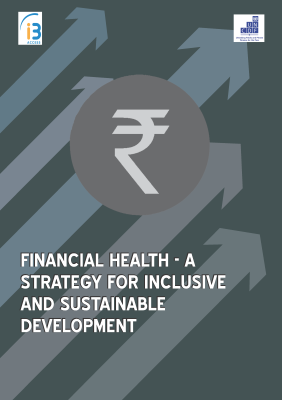
Report presented by:

Financial Health: A Strategy For Inclusive And Sustainable Development
The policy note titled Financial Health - A Strategy for Inclusive and Sustainable Development is developed to strengthen dialogue on financial health and provide actionable recommendations to key stakeholders for adopting financial health as a core policy focus.
The note highlights the need for adopting financial health as an outcome-oriented approach to strengthen achievements on financial inclusion, especially for low-income segments. The note seeks to provide an overview of financial health, highlighting key determinants that impact its pursuits, and its role towards financial stability, poverty reduction, and individual economic well being.
The note also presents good practices on adoption of financial health by key stakeholders from around the world. It furthers the agenda on financial health by providing a set of recommendations for policymakers, financial service providers, and the developmental community. The policy note is designed for government, policy influencers, and financial service providers to take cognizance of how financial health can be a useful approach for building positive financial outcomes for its citizens and consumers.
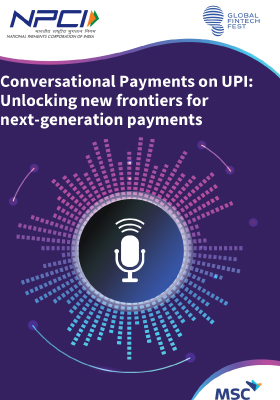
Report presented by:

Conversational Payments on UPI: Unlocking new frontiers for next-generation payments
India has seen a paradigm shift in the way payments are conducted and processed, driven by technological advancements, innovations, and a burgeoning digital economy. Products such as Unified Payments Interface (UPI), Aadhaar-enabled Payment Systems (AePS), Bharat Bill Payment System (BBPS), and RuPay debit and credit cards, among others, have furthered India’s journey of digital payments.
Yet, most payment solutions are not inclusive as they cater largely to digitally savvy users who own a smartphone and have Internet connectivity. This leaves out a large chunk of underserved users who lack access to smartphones. The report highlights one such solution — “Conversational Payments on UPI”. The report talks about the potential of this solution in building pathways to a safe and user-centric payment experience.
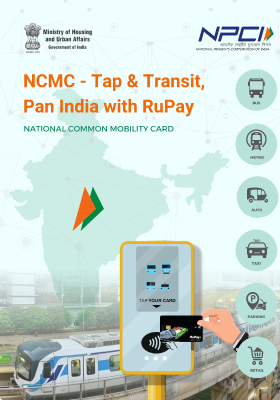
Report presented by:

NCMC - Tap & Transit, Pan India with RuPay
The paper dives deep into National Common Mobility Card, providing valuable information into its implementation and expected benefits. The card is build to create an inclusive and sustainable transit ecosystem. NCMC aims to bring standardization across public transit ecosystem in terms of issuance, acceptance networking interfaces and dispute management system.
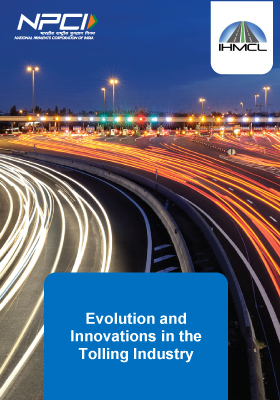
Report presented by:

Evolution and Innovations in the Tolling Industry
The tolling industry in India has seen tremendous transformation in the last decade, along with significant expansion in its road network and growth in the automotive industry. Our paper on “Evolution and Innovations in the Tolling Industry” highlights how the global tolling industry has evolved and the innovations that have been catalysts.
India is witnessing a notable upswing in intelligent transportation systems with a focus on boosting efficiency, efficacy, and transparency. The establishment of the Indian Highway Management Company Limited (IHMCL), along with the introduction of NETC FASTag, has played a pivotal role in digitalizing the Indian tolling landscape, while also encouraging digital payments in other domains such as parking and fuel stations.
With this paper, we also want to highlight modern tolling's influence on Environment, Society, and Governance (ESG), while exploring various trends in the tolling landscape. We have also explored the retail and commercial use cases of NETC FASTag, along with its impact on various stakeholders and the factors contributing to its success.
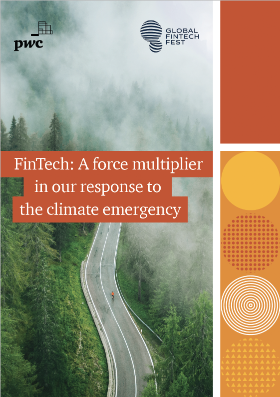
Report presented by:

FinTech: A force multiplier in our response to the climate emergency
Data and technology have a crucial role to play in the battle against climate change. Even small efforts toward sustainable decisions can result in a significant impact. For instance, if a middle-income consumer decides to use his or her savings to fund green projects, or a small and midsize enterprise running a sustainable business gets cheap access to credit from investors in Europe, the collective impact of such steps would be substantial.
The FinTech industry can leverage the massive talent pool and cutting-edge technologies at its disposal to enable a sustainable transition in businesses by accelerating responsible consumerism and greening financial markets at the same time.
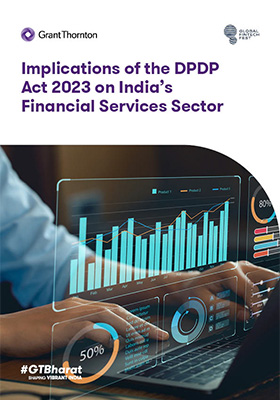
Report presented by:

Implications Of Digital Personal Data Protection Act 2023 (DPDPA 2023) On India's Financial Services Sector
In today's interconnected and digitalised landscape, data is a vital ingredient for business success, thereby showcasing the potential value of personal data and the financial services sector is no exception. However, with all its advantages, collection and usage of personal data gives rise to concerns over unauthorised access, misuse and breaches, eroding trust and imperiling individual privacy rights.
In recent years, the financial services sector has undergone significant reforms and developments including drastic regulatory changes, entry of new non-traditional entities and digital transformation, amongst others. It has evolved to become more inclusive, efficient, customer-centric, and transparent, leading to increased financial stability and improved access to financial services for individuals and businesses, revolutionising the way financial services are accessed and consumed. Robust regulatory frameworks respond to ensure data security, privacy and compliance. The Digital Personal Data Protection Act 2023 (DPDPA 2023), which is designed to safeguard the privacy and security of personal data in the evolving digital world, is a milestone achievement for the country and its people. It is a great step towards responsible data handling and protection.
The introduction of the much-awaited Digital Personal Data Protection Act (DPDPA) 2023 is a watershed moment for the country and provides individuals the opportunity to exercise control over their data. This legislation redefines the relationship between consumers and businesses, emphasising transparency and user agency and stands as a testament to the evolving regulatory guidelines in the fintech sector. DPDPA 2023 oversees the processing of digital personal data, balancing individuals' rights to safeguard their information with the legal need for data processing. This report covers the significance and applicability of personal data in the financial services sector, the changing regulatory landscape and our assessment of the impact on core operational areas across various functions within the financial services sector
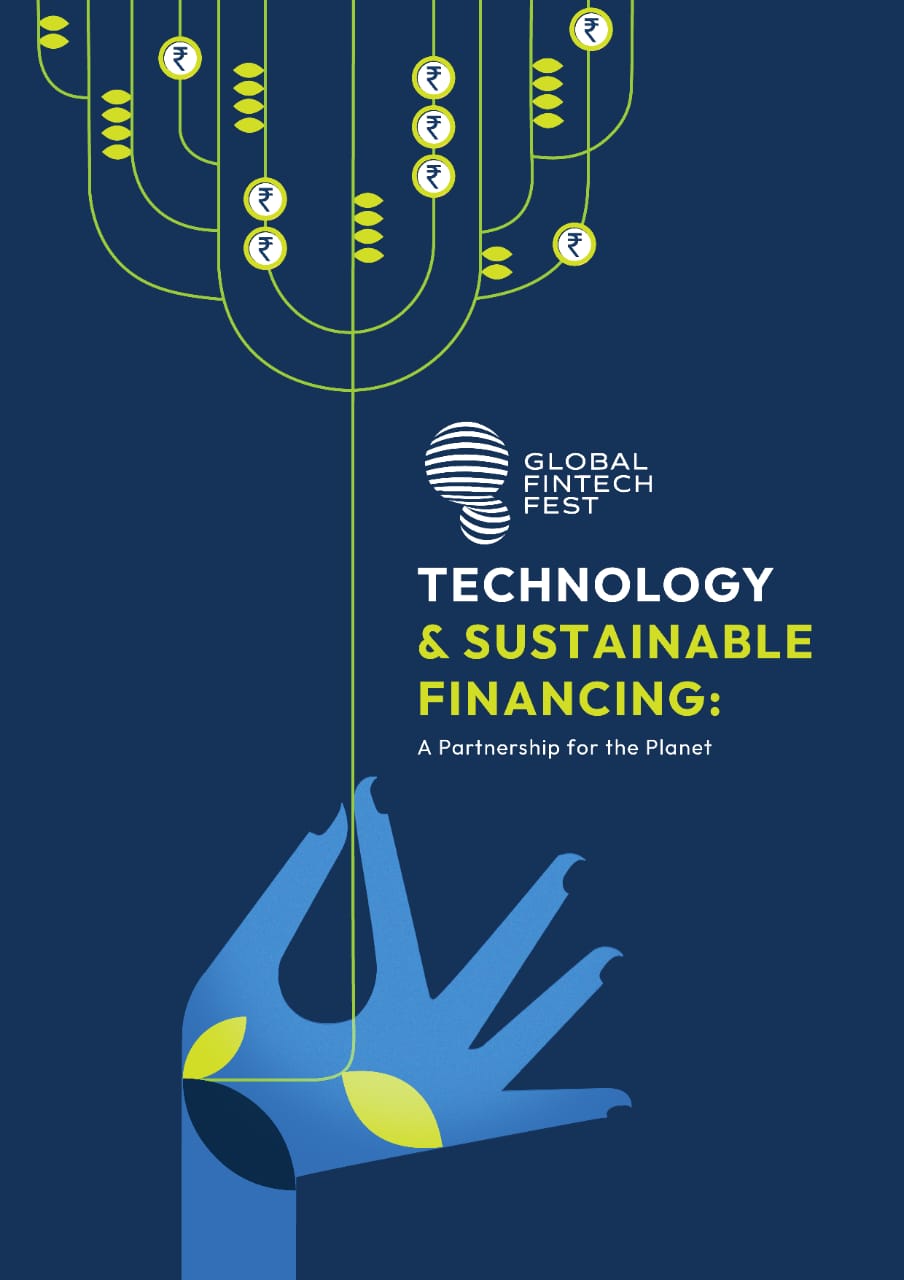
Technology & Sustainable Financing: A Partnership For The Planet
Discover how the synergy of technology and sustainable financing is reshaping our financial landscape. Positioned at the crossroads of innovation and environmental urgency, this partnership unlocks endless possibilities. Embrace data and AI's potential, gain insights into ethical practices through ESG integration, and make responsible investment choices. Algorithms and models that incorporate ESG data provide investors with clearer insights into companies' ethical and sustainable practices, thus fostering responsible investment choices. Join us to explore a future where finance and the planet thrive together.
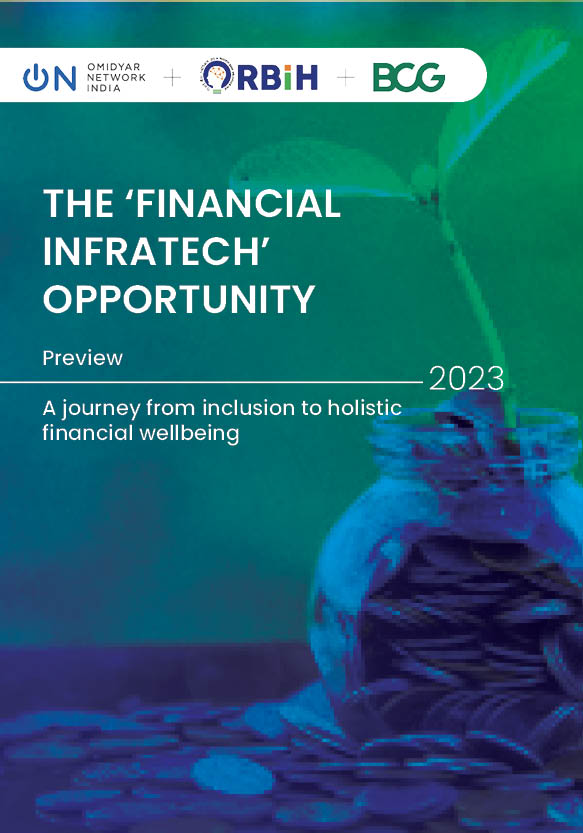
The Financial InfraTech Opportunity: A journey from inclusion to holistic financial wellbeing
In the past two decades, India’s financial landscape has been largely driven by the transformative power of technology, thereby creating an economic evolution. This technological shift owes much of its success to a silent yet crucial category of Enablers: Financial InfraTechs (F-ITs).
Through partnerships with Financial Institutions (FIs), Financial InfraTechs have enhanced the operational efficiencies and customer engagement of the FIs and have further contributed to the opening of new markets and building a responsible financial ecosystem in India.
This document presents a first look at the evolving financial landscape in India that is driven by the successes, challenges, and the promising future of the collaboration between FIs and F-ITs.
Our Contributors




